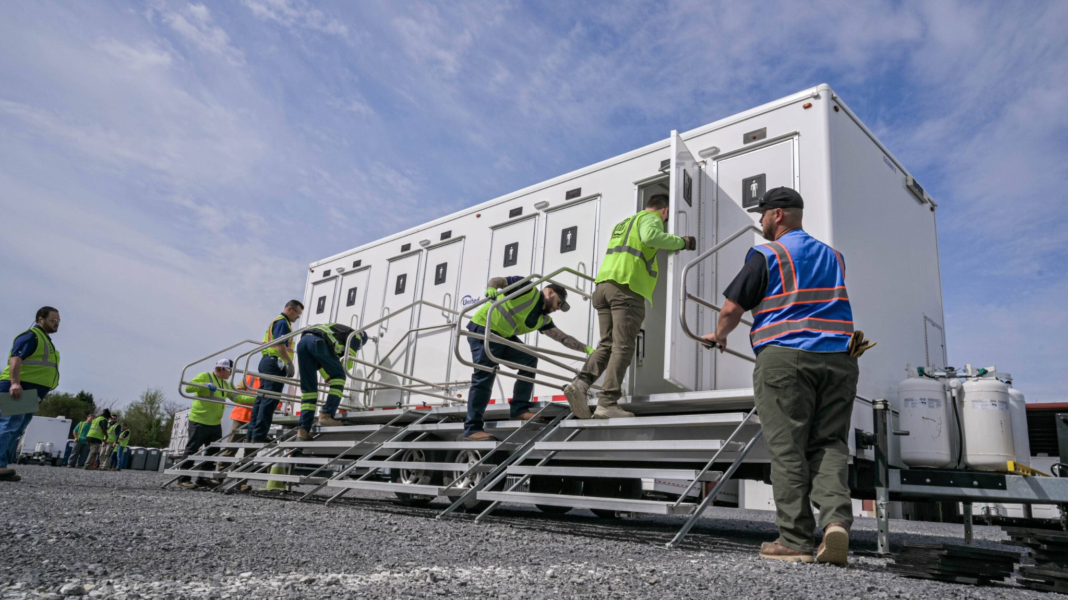In an era where environmental sustainability is at the forefront of global discussions, the need for a clean and waste-free environment is more pressing than ever. Achieving this goal requires a multi-faceted approach that incorporates innovative strategies, responsible practices, and effective policies. This article explores essential strategies for maintaining a clean environment while addressing critical aspects like domestic waste management and emergency response for portable toilets.
Understanding the Importance of a Waste-Free Environment
A clean and waste-free environment is vital for public health, ecological balance, and overall quality of life. Waste accumulation can lead to pollution, increased greenhouse gas emissions, and the deterioration of natural habitats. By implementing effective strategies, communities can minimize waste generation, promote recycling, and foster a culture of environmental responsibility.
Essential Strategies for a Clean Environment
1. Promote Recycling and Reuse
One of the most effective strategies for reducing waste is to promote recycling and reuse. Communities should implement comprehensive recycling programs that make it easy for residents to separate recyclable materials from their waste. Educational campaigns can raise awareness about the importance of recycling and provide guidance on proper sorting techniques. Additionally, promoting the reuse of items—such as donating unwanted clothing and furniture—can significantly reduce the amount of waste that ends up in landfills.
2. Implement Composting Programs
Composting is an excellent way to divert organic waste from landfills while enriching soil. By establishing community composting programs, municipalities can encourage residents to compost their food scraps, yard waste, and other biodegradable materials. Composting not only reduces waste but also contributes to healthier soil and plants, fostering a sustainable cycle of resource use.
3. Encourage Sustainable Consumption
Educating consumers about sustainable consumption practices is essential for reducing waste. This includes promoting the purchase of products with minimal packaging, choosing durable goods over disposable items, and encouraging a shift towards local and organic products. By fostering a culture of sustainability, communities can reduce their overall environmental impact and support local economies.
4. Support Waste Reduction Policies
Effective waste management policies are crucial for achieving a clean environment. Governments at all levels should enact regulations that encourage waste reduction, such as plastic bag bans, incentives for businesses to reduce packaging, and mandatory recycling initiatives. Collaborating with businesses to implement sustainable practices can also create a more waste-conscious economy.
5. Enhance Public Awareness and Education
Public education is vital for fostering a culture of environmental responsibility. Schools, community centers, and local organizations should offer programs that teach individuals about the importance of waste management and the impact of waste on the environment. By engaging the community in hands-on activities, such as clean-up drives and workshops, individuals can become more invested in maintaining a clean environment.
Domestic Waste Management
Efficient domestic waste management is a cornerstone of achieving a clean environment. This involves a systematic approach to handling waste generated by households. Implementing a robust domestic waste management system includes:
1. Segregation at Source
Encouraging households to segregate waste at the source is essential for effective waste management. By providing separate bins for recyclables, compostables, and general waste, residents can easily manage their waste. Educational campaigns can help residents understand the importance of proper segregation and its impact on recycling rates.
2. Regular Collection and Disposal
Establishing a reliable waste collection system is vital for minimizing litter and pollution. Municipalities should ensure that waste collection services are efficient, regular, and accessible to all residents. Additionally, promoting responsible disposal methods, such as hazardous waste collection days, can help manage potentially harmful materials safely.
3. Community Involvement
Engaging the community in domestic waste management initiatives can foster a sense of ownership and responsibility. Organizing neighborhood clean-up events and recycling competitions can motivate residents to actively participate in maintaining a clean environment. Community involvement is key to creating sustainable waste management practices.
Emergency Response for Porta Potties
In various situations, especially large public events, construction sites, or disaster relief efforts, portable toilets (porta potties) are essential for maintaining sanitation and hygiene. Effective Emergency Response For Porta Potties includes:
1. Pre-Planning and Site Assessments
Before any large event or construction project, it is crucial to conduct site assessments to determine the number of portable toilets required based on anticipated attendance or workforce size. Planning ahead ensures that sufficient sanitation facilities are available to meet public health needs.
2. Regular Maintenance and Sanitation
To prevent health hazards, regular maintenance and cleaning of portable toilets are essential. This includes frequent servicing to ensure cleanliness and adequate supplies, such as toilet paper and hand sanitizer. Establishing a reliable service schedule can help maintain hygiene standards, especially during high-traffic events.
3. Emergency Protocols
In the event of a public health crisis or natural disaster, having emergency protocols in place for the rapid deployment of porta potties is vital. Coordinating with local health authorities and emergency services can facilitate quick responses to ensure that sanitation needs are met during critical times.
Conclusion
Achieving a clean and waste-free environment requires a concerted effort from individuals, communities, and governments. By promoting recycling, implementing composting programs, encouraging sustainable consumption, and establishing efficient waste management practices, we can significantly reduce waste and protect our planet. Additionally, addressing domestic waste management and emergency response for portable toilets plays a crucial role in maintaining public health and hygiene. Together, these strategies can create a cleaner, healthier, and more sustainable future for all.

